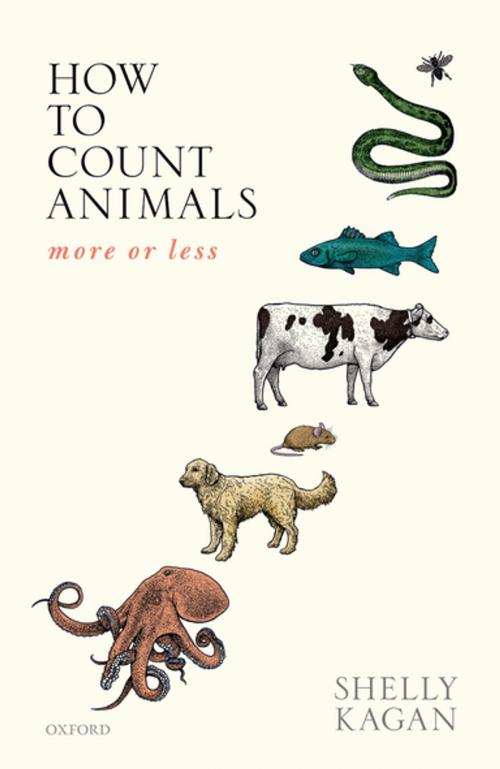How to Count Animals, more or less
Nonfiction, Religion & Spirituality, Philosophy, Ethics & Moral Philosophy, Social & Cultural Studies, Social Science| Author: | Shelly Kagan | ISBN: | 9780192565181 |
| Publisher: | OUP Oxford | Publication: | April 5, 2019 |
| Imprint: | OUP Oxford | Language: | English |
| Author: | Shelly Kagan |
| ISBN: | 9780192565181 |
| Publisher: | OUP Oxford |
| Publication: | April 5, 2019 |
| Imprint: | OUP Oxford |
| Language: | English |
Most people agree that animals count morally, but how exactly should we take animals into account? A prominent stance in contemporary ethical discussions is that animals have the same moral status that people do, and so in moral deliberation the similar interests of animals and people should be given the very same consideration. In How to Count Animals, more or less, Shelly Kagan sets out and defends a hierarchical approach in which people count more than animals do and some animals count more than others. For the most part, moral theories have not been developed in such a way as to take account of differences in status. By arguing for a hierarchical account of morality - and exploring what status sensitive principles might look like - Kagan reveals just how much work needs to be done to arrive at an adequate view of our duties toward animals, and of morality more generally.
Most people agree that animals count morally, but how exactly should we take animals into account? A prominent stance in contemporary ethical discussions is that animals have the same moral status that people do, and so in moral deliberation the similar interests of animals and people should be given the very same consideration. In How to Count Animals, more or less, Shelly Kagan sets out and defends a hierarchical approach in which people count more than animals do and some animals count more than others. For the most part, moral theories have not been developed in such a way as to take account of differences in status. By arguing for a hierarchical account of morality - and exploring what status sensitive principles might look like - Kagan reveals just how much work needs to be done to arrive at an adequate view of our duties toward animals, and of morality more generally.















